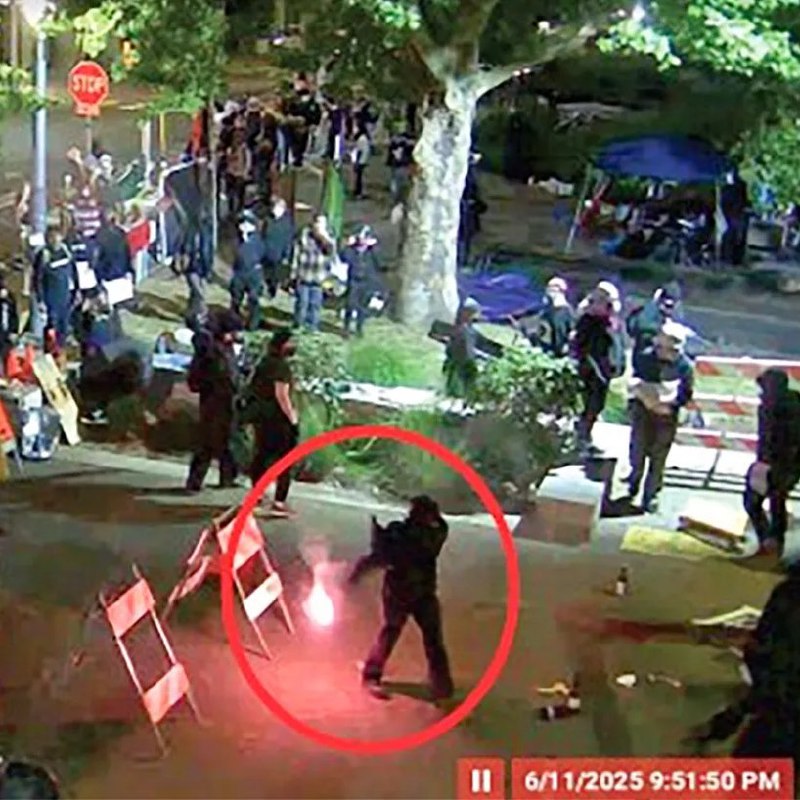Portland Antifa Member Convicted of Felony Arson Against ICE Facility
In a significant legal development, Trenten Barker, a 34-year-old member of Antifa from Portland, has been convicted of felony arson in connection with an incident involving the U.S. Immigration and Customs Enforcement (ICE) facility in Portland. The conviction was handed down by a federal court following an incident that occurred in 2020, during which Barker allegedly set debris on fire while federal agents were inside the building.
The events leading to the conviction unfolded on the night of the incident when Barker, along with others, reportedly engaged in a coordinated effort to obstruct law enforcement personnel at the ICE facility. According to court documents, Barker ignited materials that were placed near the entrance, creating a hazardous situation for those inside the building. Fortunately, no injuries were reported, but the act was deemed a serious threat to the safety of federal agents and the integrity of the facility.
Federal prosecutors presented evidence during the trial that indicated Barker's actions were part of a broader pattern of protests against ICE and its policies. The case has drawn attention not only for the nature of the crime but also for the implications it holds regarding the ongoing tensions surrounding immigration enforcement in the United States.
Following the conviction, Barker faces a significant prison sentence, with sentencing scheduled for a later date. The case has sparked discussions about the limits of protest and the legal ramifications of actions taken during demonstrations. Legal experts have noted that while individuals have the right to express their dissent, crossing the line into violence and destruction can lead to severe consequences.
This conviction serves as a reminder of the ongoing challenges faced by law enforcement in managing protests and the potential for escalation into criminal behavior. As the nation continues to grapple with issues related to immigration and law enforcement, this case highlights the complexities of activism in the current political climate.


